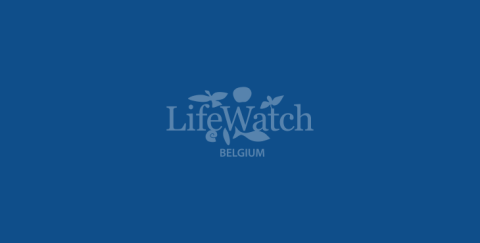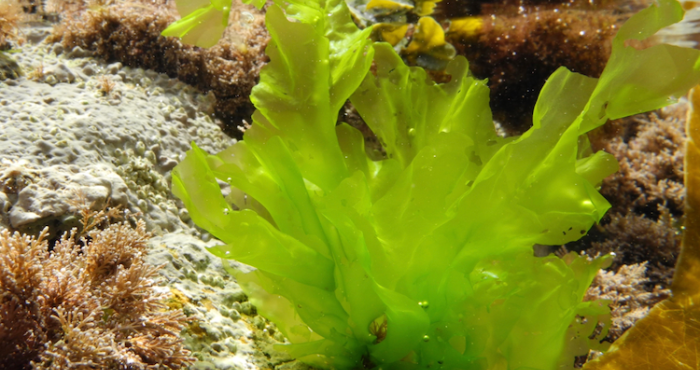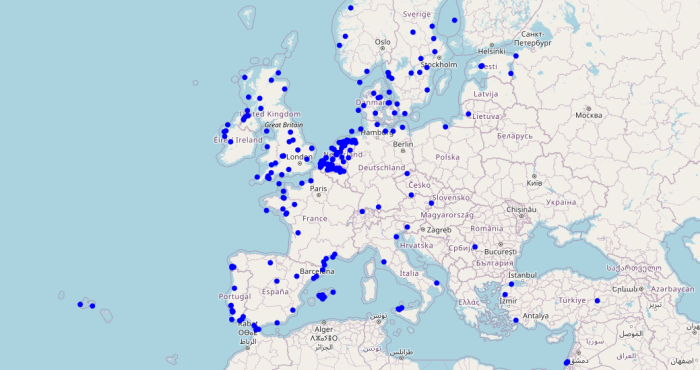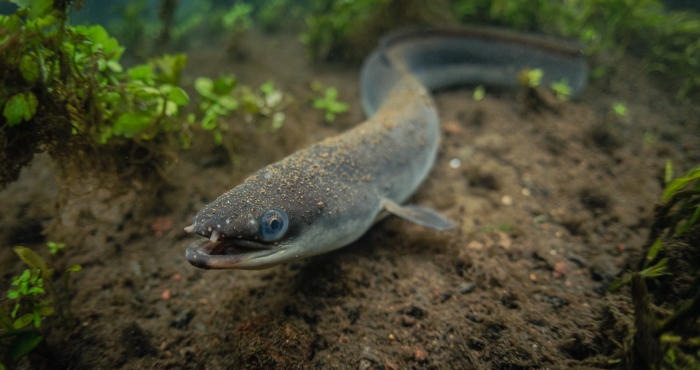LifeWatch supports the Catalogue of Life Global Team meeting @VLIZ
The Global Team and Board of Directors of the Catalogue of Life have met at the Flanders Marine Institute to discuss the strategic plan for the Catalogue and how these goals can be accomplished. Back-to-back with these meetings, a mini-symposium was organized, offering a discussion platform to users, providers and related networks and initiatives to the Catalogue of Life.

The Catalogue of Life (CoL) aims to give an overview of all species ever described worldwide. To accomplish this, CoL relies on the support and advice of its ‘Global Team’, an international group of experts that provide advice and take decisions related to the scientific policy and communications technology of the Catalogue. An elected Board of Directors deals with the legal and financial matters and is advised by the Global Team.
On March 31st and April 1st, the Global Team met at the Flanders Marine Institute (VLIZ) in Oostende, where they discussed the way forward for the Catalogue of Life. This meeting was supported by LifeWatch, a European project that also finances the further development of the World Register of Marine Species (WoRMS) which is hosted at VLIZ and is one of the major contributors to the Catalogue of Life.
Several issues were discussed in depth e.g. with regard to the remaining taxonomic gaps that need to be addressed. One of the actions the Team will undertake is to compare the World Register of Marine Species (WoRMS) and the Interim Register of Marine and Non-marine Genera (IRMNG) – both hosted at the Flanders Marine Institute – with the Catalogue of Life to identify possible gaps and how to address these. In addition, several technical improvements were suggested, which will be looked at by the Technical Team. During the coming year, the Catalogue of Life will also start adding fossil species and several strategies to include these will be executed in parallel. Most importantly, the Team also discussed the strategic plan for the Catalogue of Life for the next 5 years, where emphasis is put on the completion of the content of CoL, but also has attention for the improvement of both the quality of the data and available infrastructure of the system. The CoL will also aim at strengthening their provider network and increasing the available services.
The Global Team meeting is traditionally followed by a mini-symposium where the different aspects of the Catalogue of Life are presented. An overview of the history of the Catalogue of Life (CoL) was given, including its current position. Several users and data providers – e.g. the Freshwater Animal Diversity Assessment (FADA), WoRMS, the Herpetology database of the Royal Museum of Central Africa, FishBase and the plant specimen database of the Botanical Garden Meise - have talked about their experiences with and contributions to the Catalogue, providing valuable feedback to the Global Team on how the interactions with the Catalogue could be improved. During the second part of the symposium, 4 major initiatives – Encyclopedia of Life (EOL), the Global Biodiversity Information System (GBIF), the Biodiversity Heritage Library (BHL) and CoL itself – gave an overview of their history and future plans, with specific attention to how these initiatives could work together to improve the quality of the offered data and to avoid duplication of efforts, taking into account all the other existing initiatives such as e.g. The World Register of Marine Species (WoRMS), the Ocean Biogeographic Information System (OBIS) and the European LifeWatch initiative.
The hosting of the Catalogue of Life Global Team meeting, the mini-symposium and the meeting of the Catalogue of Life Board of Directors is supported by LifeWatch, the E-Science European Infrastructure for Biodiversity and Ecosystem Research. LifeWatch is a distributed virtual laboratory which will be used for different aspects of biodiversity research. The taxonomic backbone of LifeWatch aims at bringing together taxonomic and species-related data and at filling the gaps in our knowledge. One of the pillars of the LifeWatch Taxonomic Backbone is to provide support to taxonomic societies, offering them the opportunity to meet with their network.
On March 31st and April 1st, the Global Team met at the Flanders Marine Institute (VLIZ) in Oostende, where they discussed the way forward for the Catalogue of Life. This meeting was supported by LifeWatch, a European project that also finances the further development of the World Register of Marine Species (WoRMS) which is hosted at VLIZ and is one of the major contributors to the Catalogue of Life.
Several issues were discussed in depth e.g. with regard to the remaining taxonomic gaps that need to be addressed. One of the actions the Team will undertake is to compare the World Register of Marine Species (WoRMS) and the Interim Register of Marine and Non-marine Genera (IRMNG) – both hosted at the Flanders Marine Institute – with the Catalogue of Life to identify possible gaps and how to address these. In addition, several technical improvements were suggested, which will be looked at by the Technical Team. During the coming year, the Catalogue of Life will also start adding fossil species and several strategies to include these will be executed in parallel. Most importantly, the Team also discussed the strategic plan for the Catalogue of Life for the next 5 years, where emphasis is put on the completion of the content of CoL, but also has attention for the improvement of both the quality of the data and available infrastructure of the system. The CoL will also aim at strengthening their provider network and increasing the available services.
The Global Team meeting is traditionally followed by a mini-symposium where the different aspects of the Catalogue of Life are presented. An overview of the history of the Catalogue of Life (CoL) was given, including its current position. Several users and data providers – e.g. the Freshwater Animal Diversity Assessment (FADA), WoRMS, the Herpetology database of the Royal Museum of Central Africa, FishBase and the plant specimen database of the Botanical Garden Meise - have talked about their experiences with and contributions to the Catalogue, providing valuable feedback to the Global Team on how the interactions with the Catalogue could be improved. During the second part of the symposium, 4 major initiatives – Encyclopedia of Life (EOL), the Global Biodiversity Information System (GBIF), the Biodiversity Heritage Library (BHL) and CoL itself – gave an overview of their history and future plans, with specific attention to how these initiatives could work together to improve the quality of the offered data and to avoid duplication of efforts, taking into account all the other existing initiatives such as e.g. The World Register of Marine Species (WoRMS), the Ocean Biogeographic Information System (OBIS) and the European LifeWatch initiative.
The hosting of the Catalogue of Life Global Team meeting, the mini-symposium and the meeting of the Catalogue of Life Board of Directors is supported by LifeWatch, the E-Science European Infrastructure for Biodiversity and Ecosystem Research. LifeWatch is a distributed virtual laboratory which will be used for different aspects of biodiversity research. The taxonomic backbone of LifeWatch aims at bringing together taxonomic and species-related data and at filling the gaps in our knowledge. One of the pillars of the LifeWatch Taxonomic Backbone is to provide support to taxonomic societies, offering them the opportunity to meet with their network.



